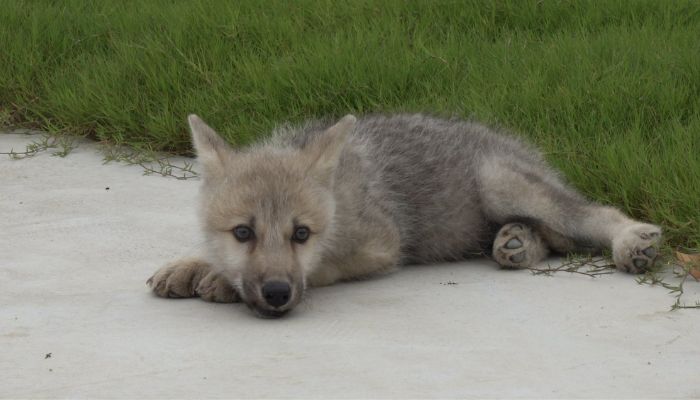Meet Maya, world's first cloned wild Arctic wolf
A Chinese gene firm has successfully cloned a wild Arctic wolf, also called polar wolf, for the first time in the world
September 21, 2022

A Chinese gene firm has successfully cloned a wild Arctic wolf, also called polar wolf, for the first time in the world.
The Arctic wolf that lives in Canada’s Queen Elizabeth Islands is an endangered species. The technological move is being considered a milestone as it is the first step toward conserving a rare animal.
The research was started in 2020 by Sinogene Biotechnology in collaboration with Harbin Polarland, the firm's general manager Mi Jidong told Global Times.
The wolf named Maya has donor cells from a skin sample of a wild female Arctic wolf and oocytes from a female dog. The animal was born via surrogacy. Its mother was a dog breed called beagle which shares genetic ancestry with ancient wolves.
The company's deputy manager said that they first created 137 embryos from oocytes without nuclei and somatic cells. Eighty-five embryos were transferred to the uteri of seven dogs. Out of these, one managed to give birth to a healthy wolf.











